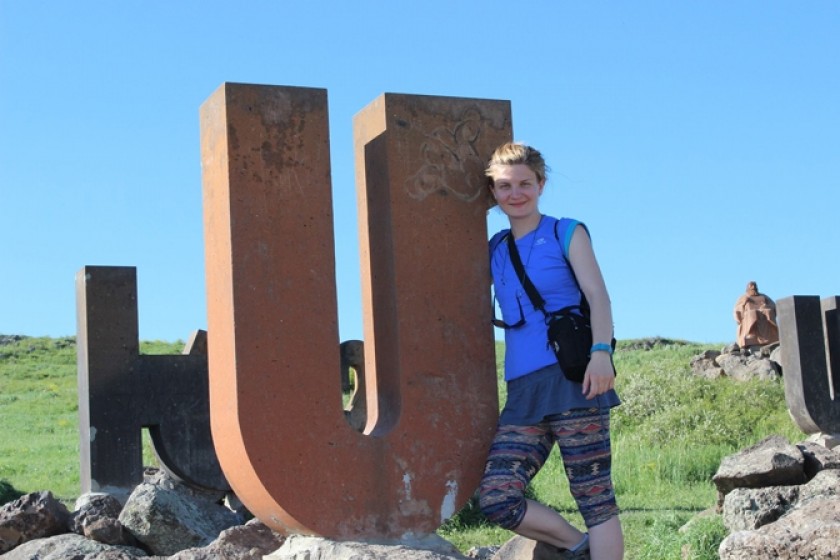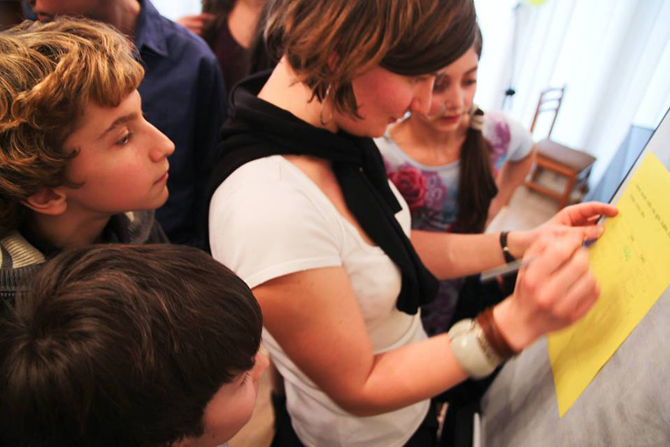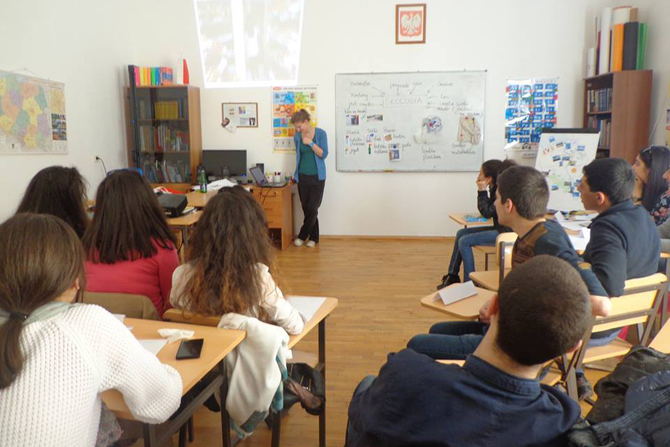
Polish Linguist: “I was amazed that students in Armenia place great attention on how they look”
Michalina Ostrowska teaches Polish at Yerevan’s Valery Bryusov State Linguistics University. She‘s been living and working in Armenia for two years.
After passing qualifying exams back home in Poland, the young teacher selected Armenia.
“I didn’t want to go to Western Europe. The country itself wasn’t all that important because I needed the work,” says Michalina. Nevertheless, I wanted to go to the Caucasus. If one can connect pleasure and work, why not?”
The young teacher believes that it’s easier for a Pole to live in Armenia, rather than someone from Western Europe, given that the histories of the two countries are similar. She says the two nations continue to live with their history, their past.
“There have been difficulties, but I believe that Armenians like foreigners,” she says.

Michalina confesses that at first she started to learn Armenian but dropped the classes because she was too busy. She later began to learn Russian in order to get by in Armenia.
She laughs because people in Armenia think that someone from Poland automatically must know Russian.
Michalina also says that some in Armenia accuse Poles of adopting an anti-Putin and anti-Russian stance. Not wanting to get into a fight with these people, she simply says that Poles and Armenians have experienced a different history when it comes to dealing with Russia.
“We have nothing against the Russians. I try to explain the historical factors involved. Frequently, people here in Armenia get quite aggressive. They start speaking quick Russian and don’t even stop to listen. It’s happened that I say hello to people in Armenia and am asked why I don’t say it in Russian,” she says.
Michalina says that she lived in a bubble for the first year in Armenia, but then she took steps to break out and immerse herself in the culture.
“I’m an open person, but I wasn’t used to strange people starting conversations with me in a public transport. On the one hand that’s a positive thing. But people here in Armenia are overly curious,” Michalina says.

She believes that people in Armenia are more laid back and live a slower lifestyle. The shortage of time, she says, isn’t a big concern. She then gives the example of her students, who postpone many things but are always prepared on the last day.
“I was amazed that students in Armenia place great attention on how they look. This is a university setting,” she says. “Sure, one’s external appearance is important but it’s not the most important.”
She tells the story of placing a closet with glass doors in her classroom. All the students would stop and look at themselves. She was forced to remove the pay of furniture because it became a distraction.
Michalina has decided to resume her Armenian classes. While she knows the basic phrases and expressions – Michalina thinks it would be a disgrace not to – she wants to improve her vocabulary.
As for remaining in Armenia, the teacher says that she would if she has a job.
 Videos
Videos Photos
Photos
Comments (4)
Write a comment